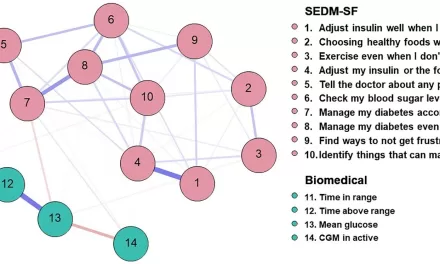ESC Congress 2024, Madrid — New research unveiled today at the ESC Congress 2024 has demonstrated that dosing antihypertensive medications in the evening does not offer additional clinical benefits compared to morning administration. These findings were presented in a Hot Line session by Principal Investigator Professor Scott Garrison from the University of Alberta, Edmonton, Canada.
Professor Garrison elaborated on the rationale for the studies: “Blood pressure (BP) typically follows a circadian rhythm, peaking after waking and dropping during sleep. Major cardiovascular events, such as myocardial infarction and stroke, are more strongly associated with high BP at night. Although previous studies have explored whether preferentially lowering nighttime BP could reduce cardiovascular risk, results have been inconsistent. Our trials, the BedMed trial in the general primary-care population and the BedMed-Frail trial in nursing-home residents, found that evening dosing is safe but does not provide additional benefits.”
The open-label BedMed trial involved 3,357 Canadian primary-care patients, aged 67 on average, who were prescribed at least one once-daily antihypertensive medication. Participants were randomized to either morning or bedtime dosing of their medications. The primary outcome was major adverse cardiovascular events (MACE), including all-cause death, hospitalization for stroke, myocardial infarction, or congestive heart failure. Secondary outcomes included all-cause unplanned hospitalizations and emergency department (ED) visits, as well as visual, cognitive, and fracture-related events.
Over a median follow-up of 4.6 years, MACE occurred in 9.7% of the bedtime group and 10.3% of the morning group, with an adjusted hazard ratio (HR) of 0.96 (95% confidence interval [CI] 0.77-1.19; p=0.70). No significant differences were observed in safety outcomes or secondary outcomes between the two groups.
The BedMed-Frail trial, which included 776 nursing-home residents with a median age of 88, also found no significant advantage to evening dosing. Over a median follow-up of 415 days, MACE occurred in 40.6% of the bedtime group compared to 41.9% of the morning group, yielding an adjusted HR of 0.88 (95% CI 0.71-1.11; p=0.28). Although secondary outcomes were generally similar, bedtime dosing was associated with fewer all-cause unplanned hospitalizations and ED visits (HR 0.74; 95% CI 0.57-0.96; p=0.02).
Professor Garrison concluded: “Our trials indicate that evening versus morning dosing of antihypertensive medications does not affect MACE or safety outcomes, whether in the general population or among frail older adults, who are typically underrepresented in clinical trials. This allows us to conclude that the timing of medication intake is less critical, and patients should take their BP medications when they are most likely to remember.”
This research provides valuable insights for clinicians and patients alike, emphasizing that the timing of antihypertensive medication may not significantly impact cardiovascular outcomes.
Source: European Society of Cardiology (ESC)












